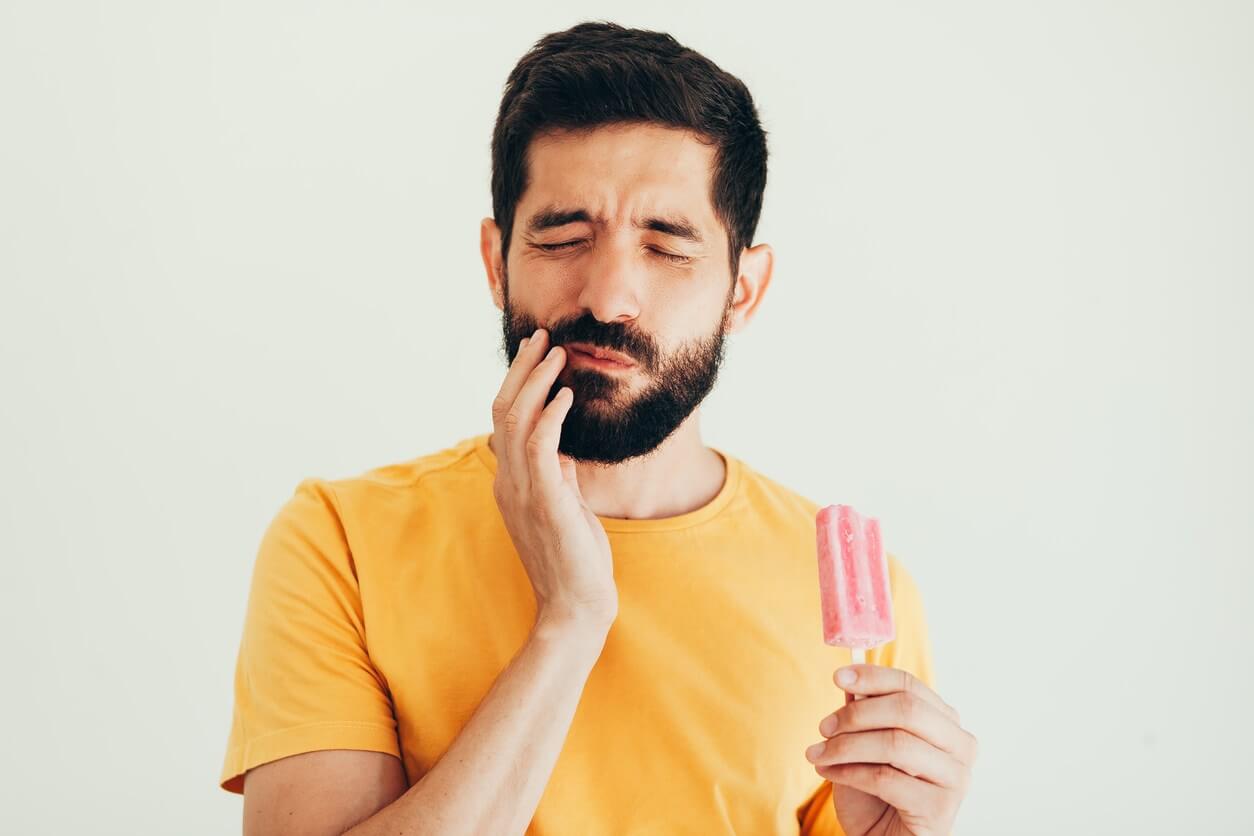Have you ever bit into an ice cream cone and had the sensation of sharp pain in your teeth? Or maybe you’ve noticed during your latest dental cleaning from your dentist in Los Angeles? Tooth sensitivity is a more common dental issue than not. Many people suffer from pain or discomfort in their teeth when exposed to substances of varied temperatures/acidities. Although the pain is temporary, a sharp sting when enjoying a meal or glass of water is uncomfortable. If you’re tired of dealing with sensitive teeth, here are some ways to care for them.
Causes
Knowing the cause of an issue is the key way to understand how to fix it. Tooth sensitivity occurs because the enamel on your tooth wears down. The enamel’s job is to protect dentin, the soft layer underneath the enamel. Dentin contains many tiny tubules that lead to the tooth’s pulp. This is where all the nerves of a tooth live. When the enamel wears down, due to cavities, a cracked tooth, or root erosion, the dentin becomes exposed and the nerves more vulnerable. This is why when you eat or drink something hot, cold, or acidic, you may feel some sharp pain. The substance is reaching the nerve inside the tooth.
Enamel wear may be caused by:
- Brushing too hard
- Gingivitis
- Gum recession
- Cracked teeth
- Grinding or clenching of teeth
- Eating too many acidic foods
Treatment
It’s important to know that sensitive teeth never fully go away, however it is absolutely possible to lessen their degree of sensitivity. Some ways to treat sensitive teeth right at home are to purchase a desensitizing toothpaste, avoid highly acidic food, and start using a soft-bristled brush.
New Toothpaste
Desensitizing toothpaste can be found at your local pharmacy or you may want to ask your dentist for a recommendation specific to your needs. Typically, toothpaste that contains fluoride is the way to go, rather than just a tartar-control paste. Outside of brushing your teeth with this toothpaste, you can also apply a thin layer to the trouble areas before bed.
Ask your dentist in Los Angeles for more recommendations.
Be Weary of Acidic Beverages
You may also want to consider purchasing a reusable straw if you’re an avid coffee drinker. Highly acidic foods can make sensitive teeth worse, but if you can drink your acidic beverage through a straw, you bypass hitting your teeth altogether.
Mouth Guard
If the enamel erosion causing your sensitive teeth is due to grinding or clenching your teeth in the night, you may want to consider getting a mouth guard. A mouth guard will protect your teeth while you’re sleeping. You can also practice some stress relieving techniques in order to prevent grinding your teeth altogether.
Choose Mouthwash Carefully
Using a mouthwash that contains fluoride can go both ways. In general, using a fluoridated mouthwash every day will help protect and rebuild your enamel. However, some mouthwashes contain acids and will only make your sensitive teeth worse. When picking out a mouthwash, be sure to research whether or not the PH balance is acidic or basic. For example, ACT Anticavity Fluoride Rinse has a PH greater than 7, making it basic, and contains fluoride — making it a great place to start for sensitive teeth. For a full list of common mouthwashes and their PH value, click here.
Visit Your Dentist in Los Angeles
Certain dental procedures may also aid in desensitizing teeth. Crowns or inlays are used to fix a tooth crack or flaw that may be the cause of a sensitive tooth, for example. A root canal may also be in order to treat severely decayed teeth. A surgical gum graft is another option if sensitivity is coming from eroded gum root. This procedure protects the root altogether.
Whatever the case may be, taking care of your sensitive teeth will help you to enjoy life more fully. If you’ve tried some of these at-home tips to no avail, you may want to schedule an appointment with your dentist. Sensitive teeth may be a sign of bigger problems at hand, so it’s important not to ignore the issue. Here at GLO Modern Dental, we’re here to guide you and your sensitive teeth on the right path to optimal dental hygiene.
